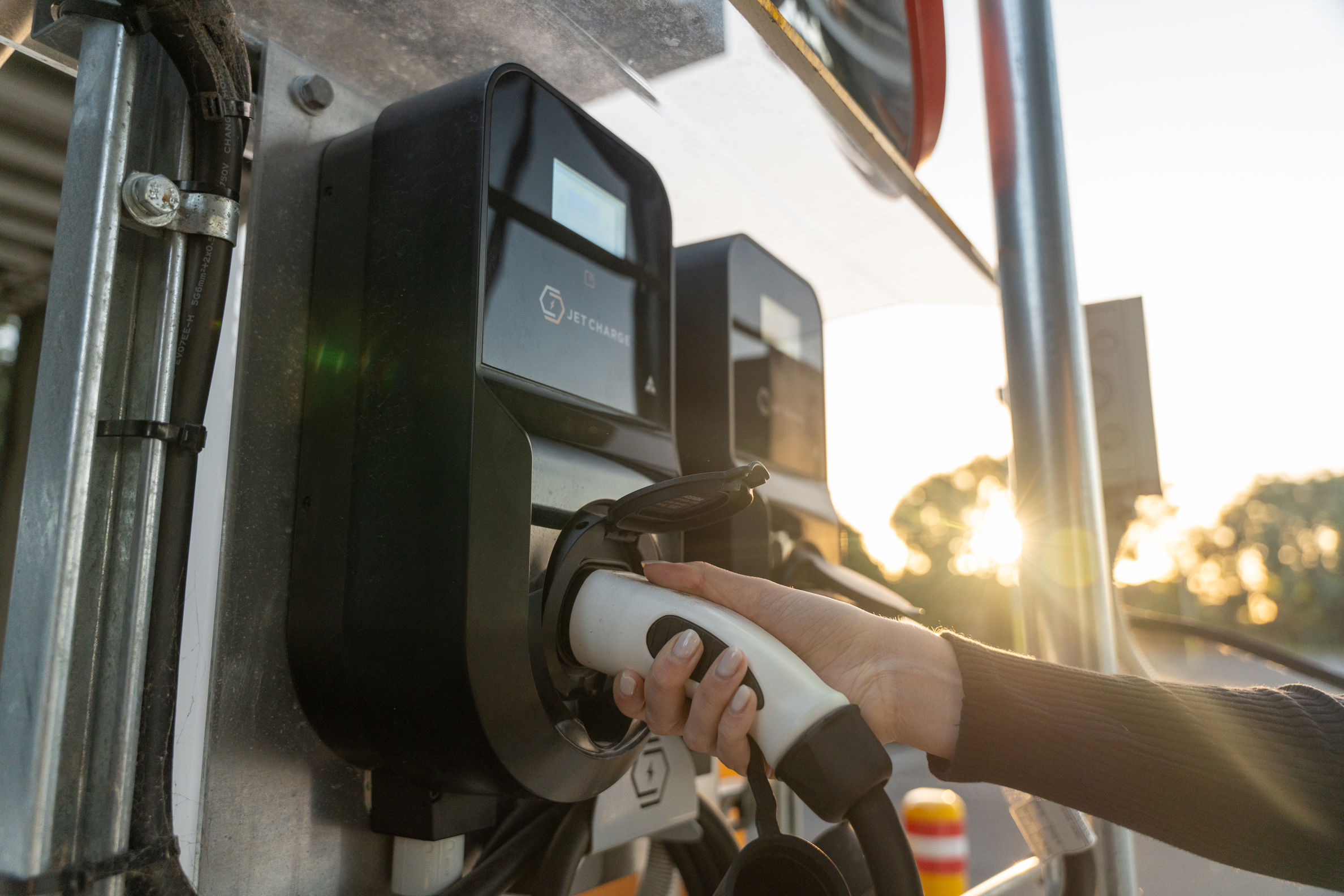
JET Charge gets smart with electric vehicles
Transforming the grid with tailored EV charging solutions
JET Charge is leading the Australian market with its smart charging infrastructure and technology. The company, which is working to become a global leader in electric vehicle charging infrastructure integration, is developing technologies that can intelligently balance EV charging needs with supportive storage capacity for evolving electricity grids.
$12.5m
CEFC investment
Smarter
chargers
Supporting
EV uptake
JET Charge is in a unique position to ensure that Australia and New Zealand are ready for the mass adoption of EVs. We have grown from a business that digs trenches and installs cables, to become the market leader in EV charging infrastructure and technology, and a company that is shaping the industry by solving challenges for business, governments and EV owners.Tim WashingtonCo-founder and CEO, JET Charge
Our investment
JET Charge is a leader in the exciting electric vehicle (EV) and infrastructure sector.
The CEFC has committed up to $12.5 million to help accelerate the growth of JET Charge and has participated in the company’s successful $25 million Series B funding round, as well as a $72 million capital raise led by global climate impact investor Mirova. Virescent Ventures manages the JET Charge investment on behalf of the CEFC.
The company was founded in 2012 to supply and install EV chargers to support and accelerate the growth of EV sales in Australia, and has since grown to be Australia’s market leader, with a growing presence in New Zealand.
By December 2024 the company had delivered more than 20,000 chargers and accessories. With a team of about 170 employees, JET Charge offers full vertical integration for EV Charging – from energy management to smart charging for Australian companies and consumers.
JET Charge is looking to accelerate the rapid deployment of its ‘Charging as a Service’ offering – a bundled EV charging solution which combines relevant charging products, technologies and services into a tailored subscription.
It is also continuing to develop its in-house technologies including CORE, its advanced on-site energy management system, and Illuminate, its flagship asset management platform.
our impact
Australia’s EV transition accelerates
The Australian Energy Market Operator (AEMO) projects that by 2040, EVs could comprise up to 72 per cent of road transport under its Green Energy Exports scenario. Transitioning to electric vehicles is a critical component of Australia's strategy to reduce emissions and achieve its net zero targets by 2050. A well-prepared EV infrastructure will play a pivotal role in supporting this transformation, both for individual users and corporate fleets.
In 2023, Australia's EV market experienced significant growth, with approximately 98,436 new EVs sold, more than doubling the previous year's figures.
Creating infrastructure
JET Charge has secured contracts and is involved in EV charging pilot projects across Australia including:
- Partnering with Team Global Express to provide state-of-the-art charging solutions for the freight and logistics company’s fleet of electric delivery vehicles. Separately, CEFC finance is helping accelerate the rollout of Team Global Express electric vehicles.
- The rollout of 98 chargers across 5,300 km in Western Australia to support Australia’s longest EV Highway
- Charging infrastructure for Elizabeth Quay Bus Station, making the station the first in Western Australia capable of supporting electric buses
- Deploying its CORE energy management system as part of the Rocland EV Smart Charging Trials in Barossa Valley, South Australia.
Smart charging benefits
As more Australians access rooftop solar, the deployment of JET Charge technology can help ensure that electric vehicles are charging at times when renewable energy entering the grid is at its highest levels. The JET Charge smart charging technology can also help ensure that electric vehicle charging occurs when the electricity grid is best able to support it.
JET Charge sees the potential for effectively free EV charging by combining smart charging, demand response, ancillary services and vehicle-to-grid technology. It aims to accelerate the reduction of transport emissions through enabling the use of cheaper, cleaner power.




